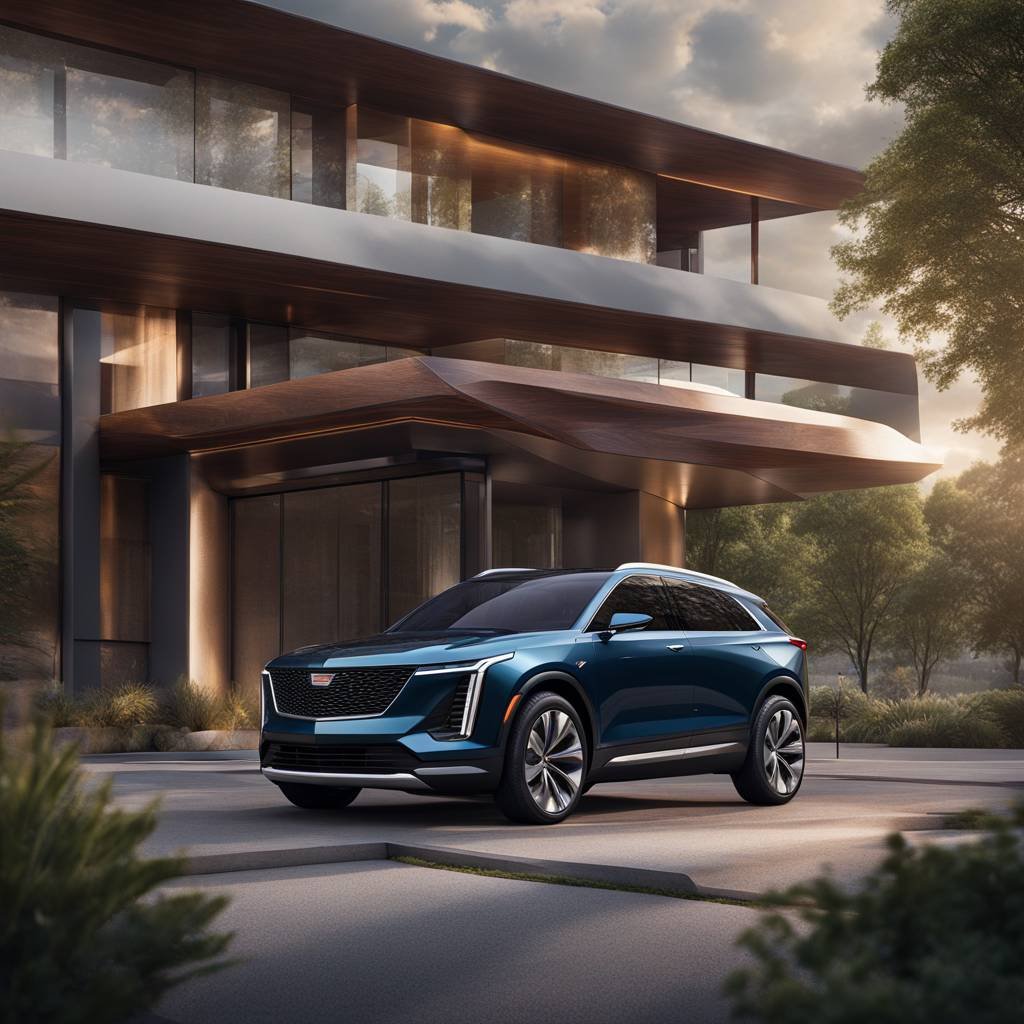Summary
– General Motors is introducing an affordable electric car era with the Cadillac Optiq aimed at younger buyers
– The Optiq crossover offers luxury features and targets buyers aged 29-39 who value tech
– Tesla CEO Elon Musk is facing criticism from investors for being a distracted CEO with multiple projects
– The auto industry is unhappy with the new FTC rule aimed at consumer protection in dealerships
– Readers are asked to consider trying out a new brand of automobile selling an EV if they could do so risk-free
Article
Cadillac’s Optiq Crossover Targets Younger Buyers
Cadillac is gearing up to introduce its new Optiq crossover, a stylish and premium entry-level EV aimed at capturing the attention of younger buyers. With features like 300 horsepower, 300 miles of range, and fast-charging capabilities, the Optiq is designed to appeal to those seeking luxury on a budget. Cadillac is hoping to attract a younger demographic, as the average age of its buyers is currently 54 years old. The Optiq is expected to target buyers in the 29 to 39 age range who are looking to purchase their first EV or luxury vehicle and value technology. Despite the challenges of changing brand perception and competing in the premium EV segment, Cadillac is optimistic about the potential success of the Optiq.
Tesla CEO Elon Musk Under Scrutiny for Distractions
Elon Musk, the CEO of Tesla, is facing criticism from investors who believe he is distracted by his involvement in various ventures outside of Tesla. Musk’s new social media platform, X, along with his roles at SpaceX, The Boring Company, and xAI, have raised concerns about his focus on Tesla’s core business. Some investors believe that Musk’s attention is being divided among multiple projects, leading to inefficiencies and potential missed opportunities for Tesla. The impact of Musk’s distractions on Tesla’s operations and strategic decisions, such as prioritizing robotaxis over a $25,000 EV, has raised concerns among shareholders and industry analysts.
Auto Industry Pushes Back Against FTC Consumer Protection Rule
The U.S. Federal Trade Commission’s new rule, Combating Auto Retail Scams (CARS), which aims to regulate dealership practices related to advertising, financing, and insurance, has sparked opposition from the National Automobile Dealers Association and the Texas Automobile Dealers Association. These groups are challenging the rule on the grounds that it lacks evidence of widespread misconduct among auto dealers and imposes unnecessary regulatory burdens on the industry. They argue that the rule could increase costs for consumers without providing significant benefits. The FTC, on the other hand, defends the rule as a necessary measure to address deceptive practices in the auto industry and protect consumers from unfair treatment.
Exploring New Automotive Brands and EV Options
With the automotive market expanding and evolving to include more electric vehicle options, consumers have the opportunity to explore new brands and models that cater to their preferences and priorities. Brand loyalty plays a significant role in influencing consumer choices, but there is also a growing interest in trying out different brands and technologies. As the industry continues to innovate and introduce new EVs with advanced features and performance capabilities, consumers are encouraged to consider alternative options beyond their comfort zone. By embracing change and adopting a more open-minded approach to trying out new brands, consumers can experience the benefits of cutting-edge automotive technologies and contribute to the growth and development of the EV market.
Conclusion
As the automotive industry shifts towards electric vehicles and innovative technologies, automakers like Cadillac are targeting younger buyers with entry-level luxury EVs such as the Optiq crossover. Meanwhile, Tesla CEO Elon Musk faces criticism for his involvement in various distractions, raising concerns about his focus on Tesla’s core business. Additionally, the auto industry is contending with the FTC’s new consumer protection rule, with dealership groups challenging the regulations imposed on their advertising and sales practices. Despite these challenges, consumers have the opportunity to explore new brands and EV options to support the growth and development of the electric vehicle market. By considering alternative choices and embracing change, consumers can contribute to the advancement of the automotive industry and experience the benefits of cutting-edge technologies in the EV market.
Read the full article here



